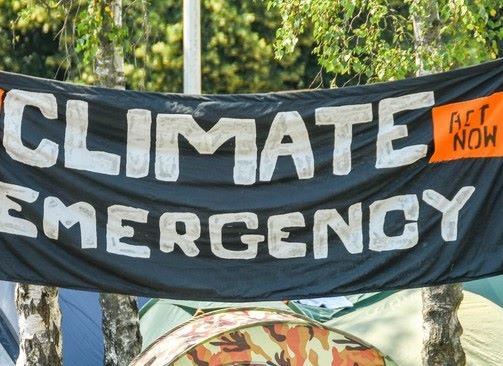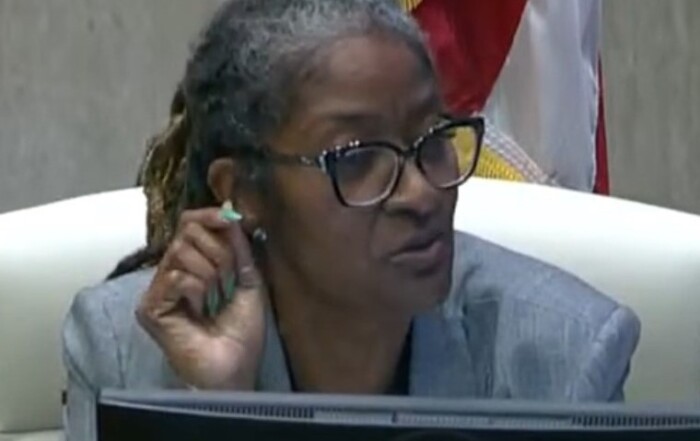By Leah Pressman
It can be a lot of work to follow the Culver City Council, but often, late into the night, they hold important discussions and vote on issues we care deeply about. These discussions can tell us so much about our elected representatives and their values. The November 11 meeting was no exception.
That night, starting at 10:45 pm, the council considered item A-1, which would have declared a “climate emergency” and made acting on the climate plans outlined in our policy platform and general plan an urgent priority. Culver City is too small to join the consortium of C40 “climate emergency cities,” but could join their work by declaring a climate emergency as many other smaller cities have done. The declaration would also have allied Culver City with Los Angeles, which IS part of the C40 consortium, in work to better prepare for potentially devastating climate-driven local impacts on safety, health, city finances, and the economy.
Council Members Vera, O’Brien, and Eriksson made clear they did not support this item, so it was discussed but not brought to a vote.
Mayor Yasmine-Imani McMorrin thanked Council member Freddy Puza for his leadership in putting this item on the agenda and stated that, given the climate-denying administration coming into the White House, she “had grave concerns on the federal level and how that might impact us on the state and local level.” She stressed the importance of the City making its plans to mitigate climate change an urgent priority and expressed the hope that the council could revisit such a declaration in the future.
Eriksson, Vera, and O’Brien all said the declaration was unnecessary because the city already has plans in place in its Legislative Platform and General Plan. McMorrin countered that the city has too often been slow to act on its long-term goals and plans, citing the long-unrealized plan for improvements to pedestrian and traffic safety in Fox Hills. Puza argued that the “scientific evidence is unequivocal; climate change is a threat to human well-being and the health of the planet” and warned of scientific estimates that the local impacts of climate change could cost Culver City upwards of $43 million.
Council member Puza challenged Eriksson to clarify whether he thought the climate emergency was real and Eriksson demurred, stating “I wouldn’t call it a crisis. We have a challenge.” In contrast to his enthusiasm for declaring a homelessness emergency as soon as he had a majority on the Council, Eriksson admonished those in attendance that “panic is a very bad advisor so I think it’s actually detrimental to call these things ‘emergency’ and ‘catastrophe’.”
He argued that the reduction of deaths from cold balanced out the increase in deaths from heat and that France, after 15,000 people died from heat during two weeks in the summer of 2003, had solved the problem by requiring air conditioning in senior living facilities.
Eriksson was drawing on one of his favorite authors–Michael Shellenberger. Eriksson gave copies of Shellenberger’s 2021 book, San Fransicko: Why Progressives Ruin Cities to friends, supporters, and even City Housing staff. Shellenberger began his career as a climate skeptic. In his 2020 book, Apocalypse Never: Why Environmental Alarmism Hurts Us All, he proposes that climate change is not an existential threat and that business and technological solutions, if allowed to continue without unreasonable restriction, will be adequate to address the consequences of climate change. MacArthur Fellow Peter Glieck, writing in Yale Climate Connections, called this work “deeply and fatally flawed” and “riddled with a variety of simple errors.”
I look forward to this item returning now that the majority of the council are individuals who take the dangers of climate change and the importance of action seriously.
Photo by Ceri Breeze on iStockphoto.com
Stay informed. Sign up for The Westside Voice Newsletter
By clicking submit, you agree to share your email address with Westside Voice. We do not sell or share your information with anyone.







